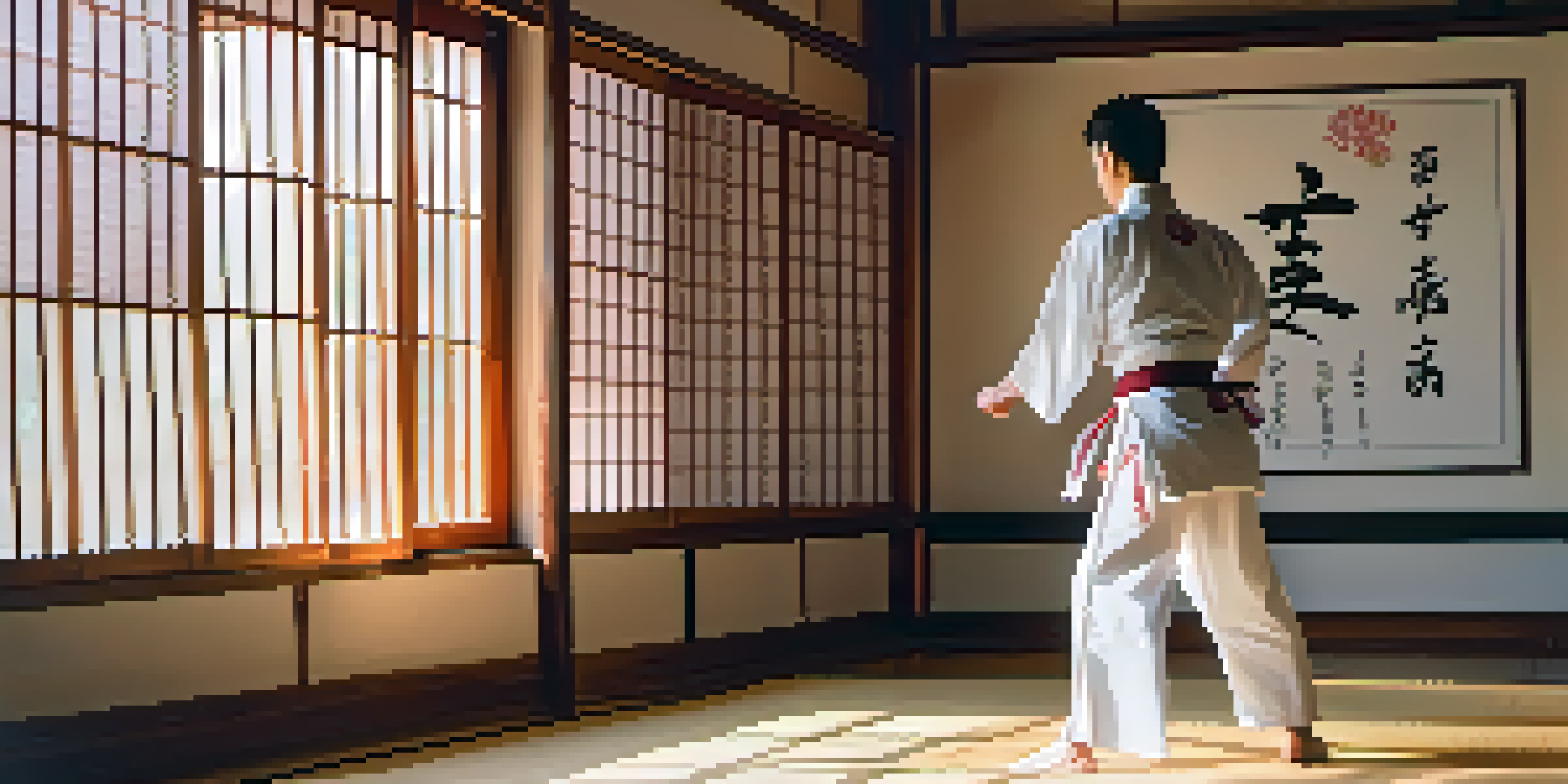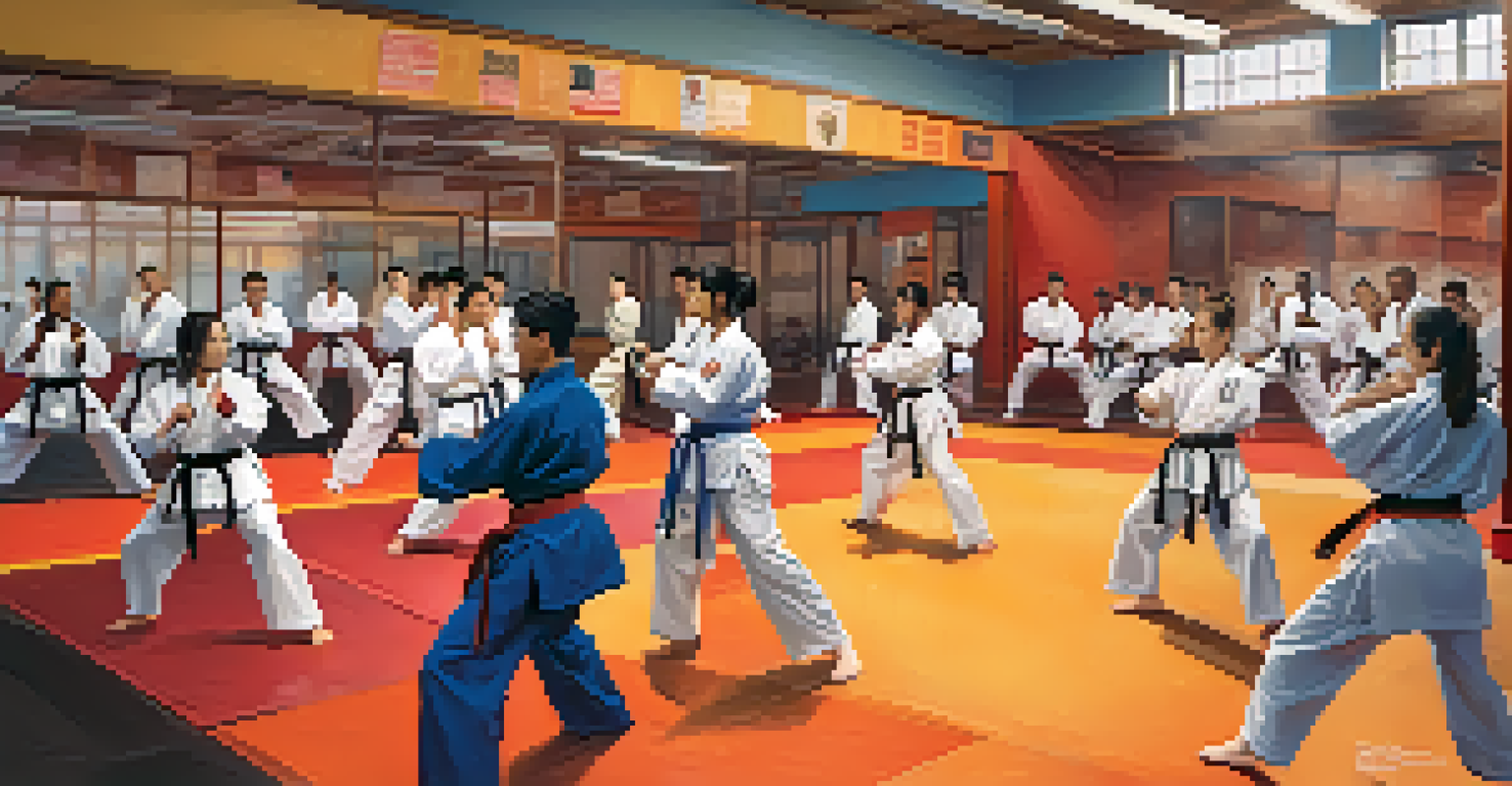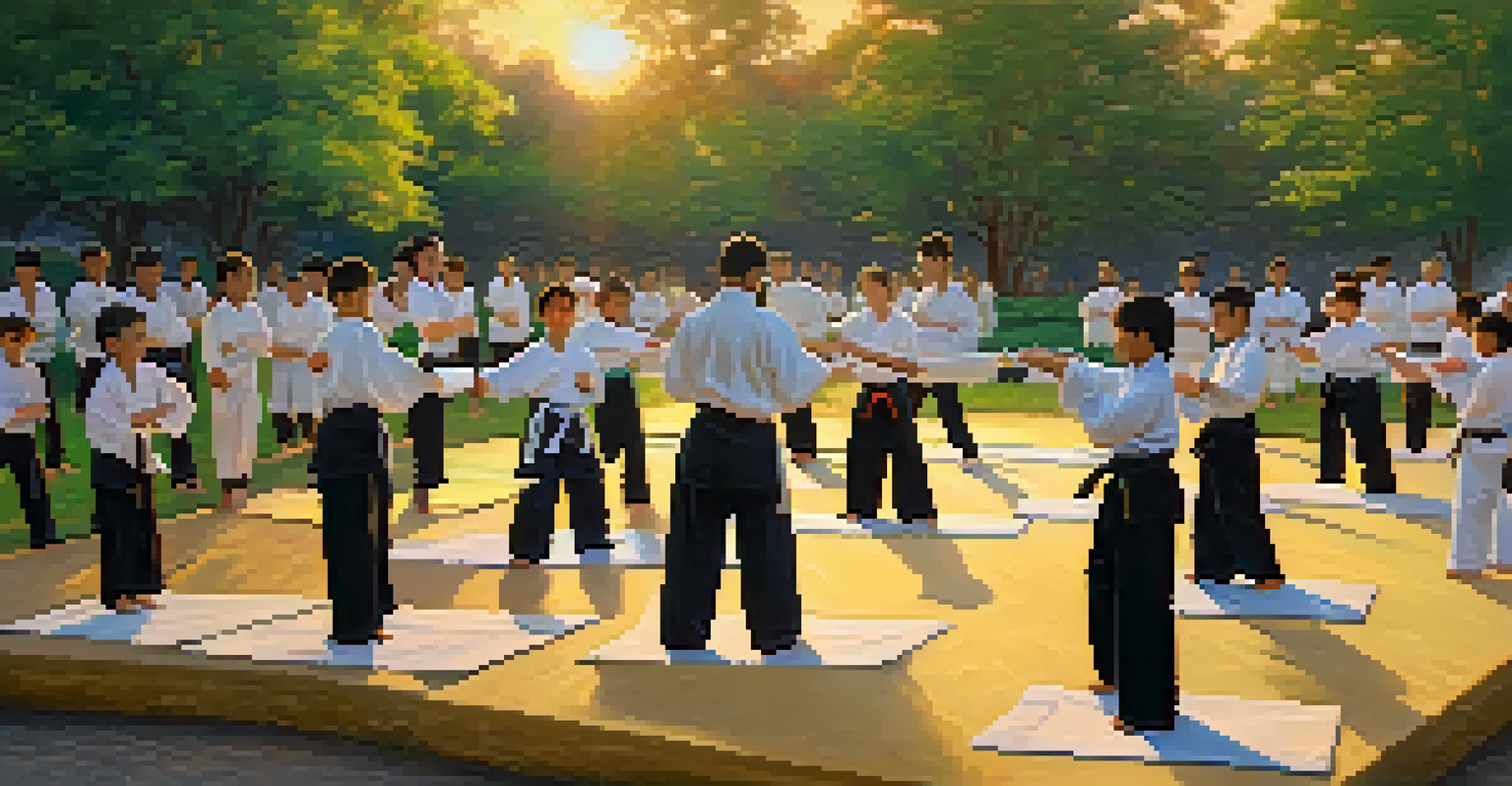Mental Resilience Through Martial Arts: A Public Health Analysis

Understanding Mental Resilience and Its Importance
Mental resilience refers to our ability to adapt and bounce back from challenges, stress, and adversity. It's like a mental muscle that we can strengthen over time, enabling us to handle life's ups and downs more effectively. In today’s fast-paced world, where stressors abound, cultivating this resilience is crucial for overall well-being.
It's not whether you get knocked down, it's whether you get up.
Resilience doesn’t mean avoiding stress; rather, it’s about learning how to manage it. Individuals with high mental resilience tend to have better emotional regulation, improved problem-solving skills, and a more positive outlook on life. This not only benefits their mental health but can also have positive effects on their physical health.
Incorporating activities that promote resilience, such as martial arts, can provide individuals with practical tools to enhance their mental fortitude. This holistic approach not only addresses psychological aspects but also encourages physical fitness, creating a comprehensive support system for health.
Martial Arts: A Pathway to Mental Strength
Martial arts, encompassing disciplines like karate, judo, and taekwondo, focus on both physical and mental training. Practicing these arts requires discipline, focus, and perseverance—key components of mental resilience. As practitioners face challenges in mastering techniques, they learn to overcome obstacles, fostering a mindset of determination.

The training environment in martial arts encourages goal setting and incremental progress. Students often start as beginners, gradually building their skills and confidence through hard work and dedication. This journey not only builds physical capabilities but also reinforces the belief that persistence leads to success.
Mental Resilience is Crucial
Building mental resilience helps individuals adapt to stress and adversity, enhancing overall well-being.
Moreover, martial arts teaching emphasizes respect, self-control, and humility, further enhancing mental resilience. As individuals learn to respect their opponents and themselves, they develop a balanced perspective on competition and personal growth, which can translate into other areas of life.
The Science Behind Physical Activity and Mental Health
Research shows a strong link between physical activity and improved mental health outcomes. Engaging in regular exercise, like martial arts, releases endorphins, often referred to as the 'feel-good' hormones. This biochemical response helps reduce stress, anxiety, and symptoms of depression, contributing to overall mental resilience.
The greatest glory in living lies not in never falling, but in rising every time we fall.
Furthermore, physical activity can also improve sleep quality, boost self-esteem, and enhance cognitive function. As individuals commit to martial arts, they not only gain physical strength but also experience these mental health benefits, creating a positive feedback loop that further promotes resilience.
Participating in group classes or sparring sessions fosters a sense of community and support, which is vital for mental well-being. This social interaction can alleviate feelings of isolation, encouraging individuals to engage with others and build meaningful relationships.
Developing Emotional Regulation Through Martial Arts
One of the significant benefits of martial arts training is the development of emotional regulation skills. Practitioners learn to manage their emotions during high-pressure situations, such as sparring or competitions. This practice helps individuals recognize their feelings and respond to them appropriately rather than react impulsively.
Techniques such as controlled breathing and mindfulness are often integrated into martial arts training. These approaches encourage practitioners to stay calm and focused, even in challenging situations. Over time, these skills translate into everyday life, allowing individuals to handle stressors more effectively.
Martial Arts Boost Confidence
Practicing martial arts fosters self-efficacy and confidence, enabling individuals to tackle challenges effectively.
By learning to control their emotions, martial artists can improve their decision-making abilities and enhance their interpersonal relationships. This emotional intelligence is a crucial aspect of mental resilience, enabling individuals to navigate both personal and professional challenges with greater ease.
Building Confidence and Self-Efficacy Through Practice
As individuals progress in martial arts, they often experience a significant boost in confidence and self-efficacy. Achieving new belts or mastering challenging techniques provides tangible evidence of their capabilities, reinforcing their belief in themselves. This newfound confidence extends beyond the dojo, impacting various aspects of their lives.
Self-efficacy, or the belief in one's ability to succeed, is a critical component of mental resilience. When individuals feel capable, they're more likely to tackle challenges head-on rather than shy away from them. This mindset shift can lead to better problem-solving and coping strategies in the face of adversity.
Moreover, the supportive environment within martial arts training encourages individuals to step out of their comfort zones. As they face fears and push their limits, they build resilience that can be applied to life's many challenges, fostering a growth mindset.
Community and Social Support in Martial Arts
Martial arts often foster a strong sense of community among practitioners. This environment of support and encouragement can play a significant role in mental resilience. Knowing that others share similar challenges and goals creates a sense of belonging and reduces feelings of isolation.
In addition to camaraderie, martial arts schools often emphasize mentorship. More experienced practitioners guide beginners, providing them with not only technical skills but also emotional support. This mentorship fosters resilience by promoting learning and growth in a safe, nurturing environment.
Community Supports Mental Health
The sense of community in martial arts provides essential support, reducing feelings of isolation and promoting resilience.
Additionally, social interactions within martial arts can enhance motivation and accountability. When individuals train together, they inspire each other to push their limits and remain committed to their goals, further strengthening their mental resilience.
Integrating Martial Arts into Public Health Strategies
Given the numerous mental health benefits associated with martial arts, integrating these practices into public health strategies could be highly beneficial. Community programs that offer martial arts classes can provide accessible avenues for individuals to improve their mental resilience and overall health. This approach not only targets physical fitness but also addresses psychological well-being.
Public health initiatives focusing on mental health could incorporate martial arts as a form of therapy or intervention. By providing structured environments for learning and skill development, these programs can offer individuals valuable tools for coping with stress and adversity.

Moreover, promoting martial arts within schools and community centers can help instill resilience in younger generations. Teaching children to manage their emotions and build confidence through martial arts can equip them with skills that last a lifetime, ultimately contributing to a healthier society.